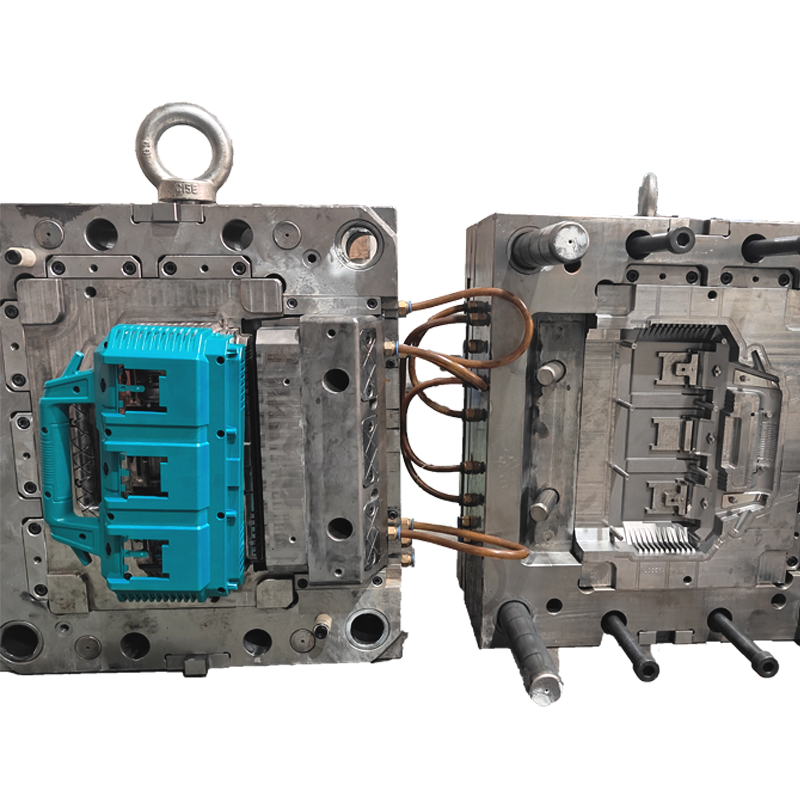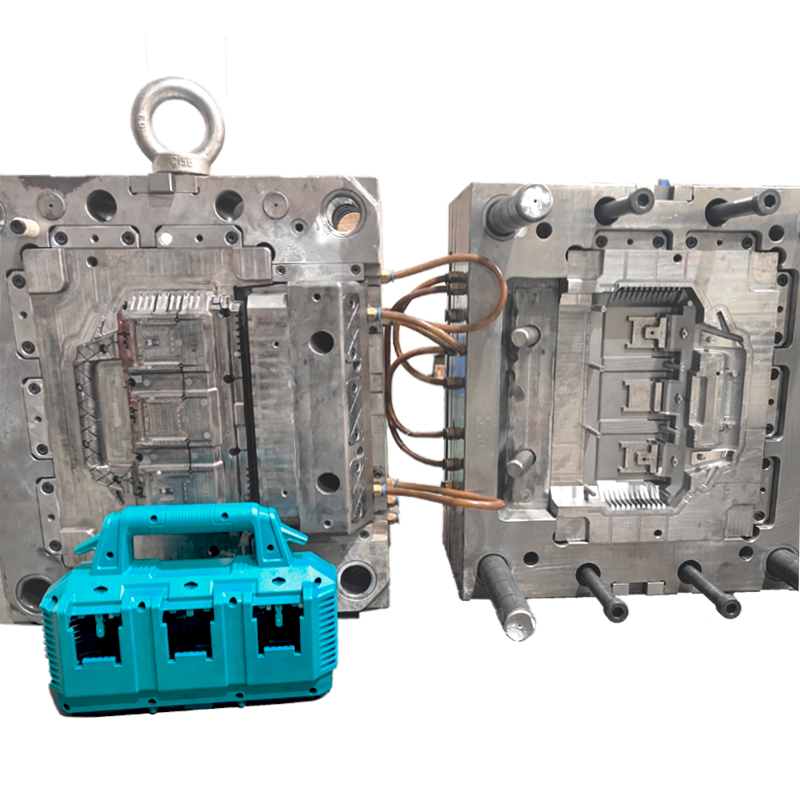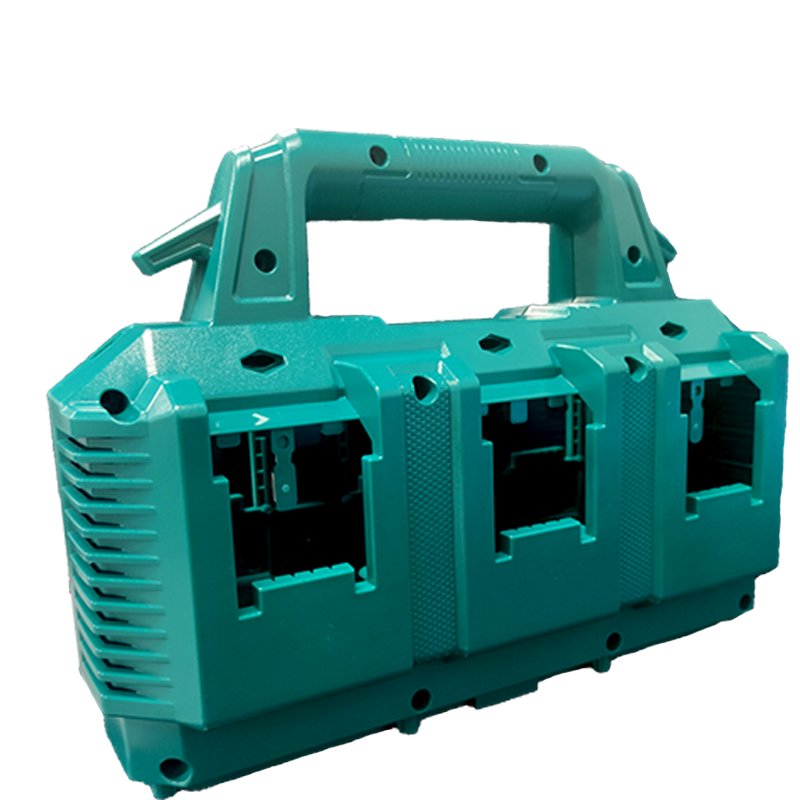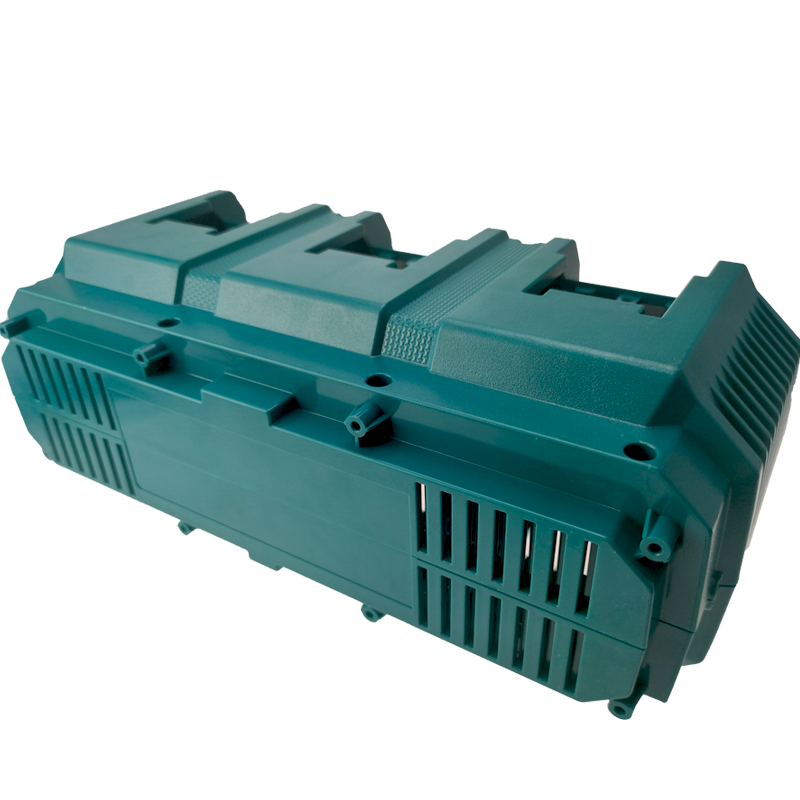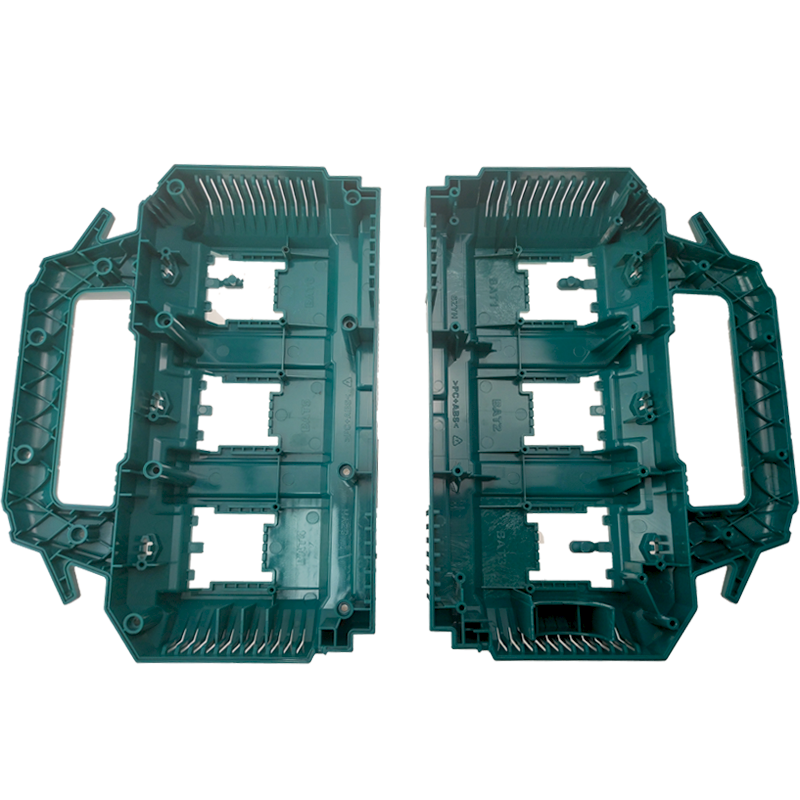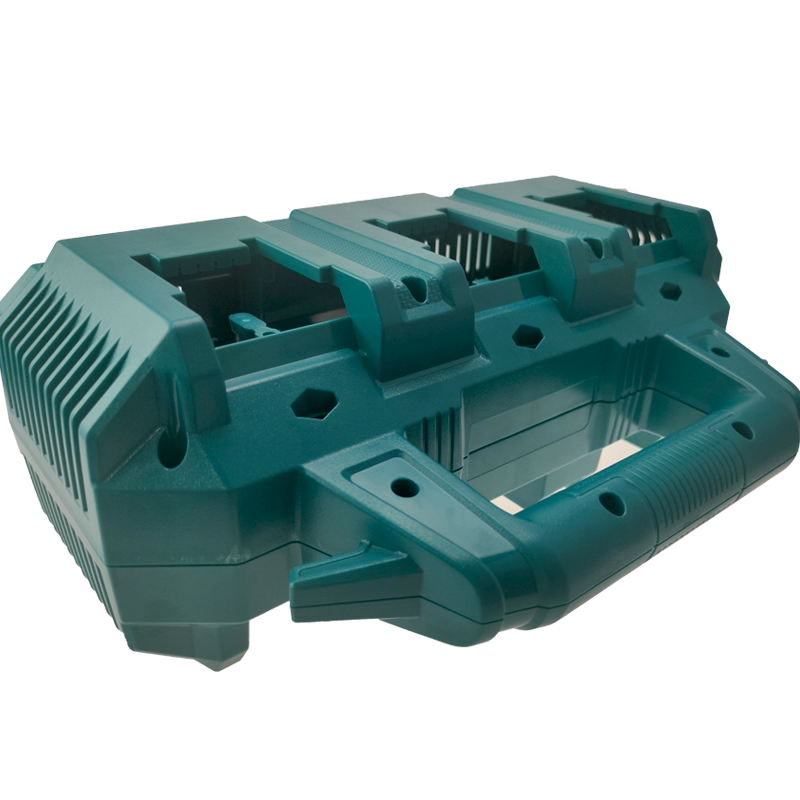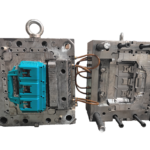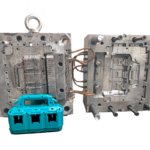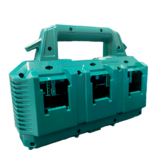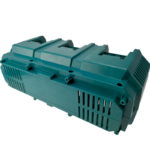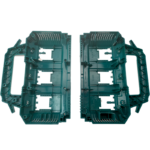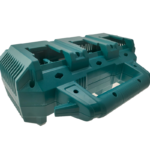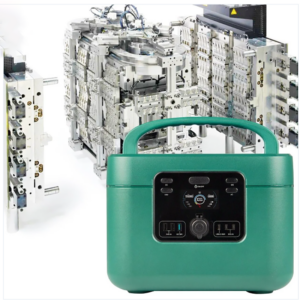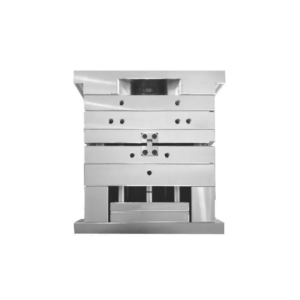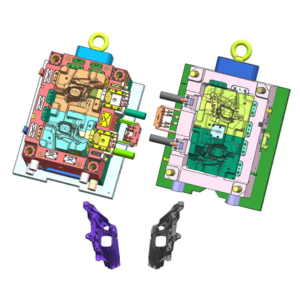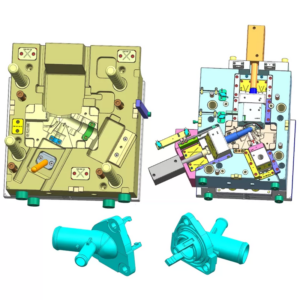Ferramentas para Caixa de Bateria - Moldes de Caixa de Bateria em Plástico
Os Moldes para Caixas de Baterias da nossa coleção de topo oferecem a solução ideal para satisfazer todas as suas necessidades de fabrico de baterias. Disponíveis tendo em mente baterias de chumbo-ácido, células de lítio-ion e opções de UPS, os nossos especialistas em moldes para baterias compreendem a importância de encontrar moldes adaptados especificamente aos seus ambientes de trabalho e requisitos.

A nossa vasta coleção de moldes para caixas de baterias inclui várias séries adaptadas a diferentes tipos de baterias. Para baterias automotivas, oferecemos moldes das séries N40, N50, N70, N100, N120, N150 e N200, proporcionando um ajuste perfeito para as suas necessidades específicas de veículo. Se precisar de baterias para UPS, os nossos moldes das séries 55AH, 90AH e 100AH foram projetados para satisfazer as suas necessidades de energia de reserva de forma fiável. Para baterias de inversor, disponibilizamos os moldes da série IT 500, e para baterias DIN, temos as séries DIN55 e DIN66. Além disso, somos capazes de criar moldes personalizados para caixas de baterias em plástico de acordo com as suas especificações únicas.
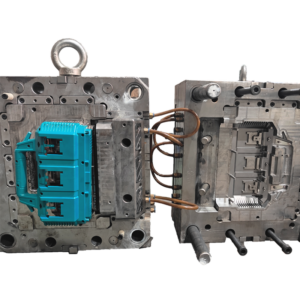
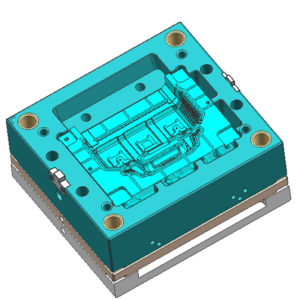
Como um novo fabricante de moldes para peças de energia, temos muitos anos de conhecimento e experiência profissional, focando em fornecer excelentes soluções de moldes para o campo das novas energias. As nossas capacidades de design e fabrico de moldes são concebidas para atender às necessidades e especificações específicas dos clientes, garantindo que estes possam obter peças de alta qualidade.
O nosso serviço inclui:
- Design e Suporte de Engenharia de Moldes
- Seleção de Materiais e Recomendações
- Fabricação de Moldes
- Desenvolvimento de Protótipos
- Experiência e Ajuste de Moldes
- Entrega Rápida
- Garantia da Qualidade
- Práticas de Sustentabilidade
Capacidade:
- Design e Fabricação de Alta Precisão
- Reprodução Precisa de Geometrias Complexas
- Design de Múltiplas Cavidades para Maior Eficiência
- Materiais e Processos de Fabricação Resistentes a Altas Temperaturas
- Sistema de Arrefecimento de Precisão
- Longevidade e Manutenção
- Sistema de Controlo de Qualidade
Tipos de Ferramentas
1. Ferramentas de Protótipo
O fabrico de protótipos, também conhecido como moldes suaves ou fabrico rápido de ferramentas, é quando as ferramentas são projetadas, produzidas e testadas para ajuste, forma e função em preparação para o processo de produção. Durante o processo de prototipagem, os fabricantes podem ajustar o design várias vezes para alcançar um desempenho e acabamento ótimos. Alguns materiais que são frequentemente utilizados na prototipagem incluem borracha de silicone, liga de alumínio e aço macio, devido ao seu custo mais baixo; são geralmente mais rápidos e fáceis de moldar. Os benefícios do fabrico de protótipos incluem:
- Cria protótipos rapidamente, muitas vezes levando apenas horas ou dias em vez de várias semanas.
- Investimento menor, permitindo testes para verificar falhas de design, tolerâncias e mais.
- Peças precisas podem ser produzidas.
2. Ferramentas de Produção
A ferramenta de protótipo, também chamada de ferramenta suave ou ferramenta rápida, permite que os fabricantes projetem, produzam e testem ferramentas para avaliar o ajuste, a forma e a função antes da produção em larga escala. Materiais como borracha de silicone, liga de alumínio e aço macio são frequentemente utilizados devido à sua relação custo-eficácia e facilidade de moldagem. Os benefícios incluem a produção rápida de protótipos em horas ou dias, menores custos de investimento e a capacidade de produzir peças precisas para testes e validação.
Processo de Fabricação de Moldes
- A verificação de Product3D e DFM
- Design de ferramentas e obter aprovação
- Compra de material para moldes
- Construção ousada de processos de CNC e EDM.
- Usinagem auxiliar, como EDM por fio, perfuração e rectificação.
- Polimento
- Montagem do molde
- Controlo de Qualidade
- Amostra T0 e P0 para aprovação do cliente.
- Embalagem e entrega
Tolerâncias Apertadas
Utilizando EDM por fio, CNC de 5 eixos e outros equipamentos de alta precisão para alcançar tolerâncias de até 0,01 mm.
Máquinas Principais de Fabricação de Ferramentas
| Máquinas | Quantidade |
| Alta velocidade de 42000 e CNC de precisão | 2 |
| Outras 7 Máquinas CNC | 7 |
| Makino EDM de imersão | 4 |
| EDM a fio Sodic | 5 |
| Moinho de Alta Precisão | 5 |
Materiais
- P20 (P20HH)
- S136 (S136H)
- NAK80
- H13
- 718 (718H)
- 2738 (P20+Ni)
- 2316
- MoldMAX
- Alumínio
Por Que Nos Escolher para a Sua Fabricação de Ferramentas
1. Equipamento e Tecnologia Avançados
Dispomos de equipamentos e tecnologia de fabricação avançados, incluindo máquinas CNC de alta precisão, software CAD/CAM e tecnologia de impressão 3D. Estas ferramentas avançadas permitem-nos alcançar uma fabricação precisa de moldes e realizar detalhes intrincados e formas complexas com a máxima precisão.
2. Suporte Personalizado em Design e Engenharia
Trabalhamos em estreita colaboração com os nossos clientes, adquirindo uma compreensão profunda das suas necessidades e requisitos de produto. A nossa equipa experiente de engenheiros oferece conselhos profissionais de design e apoio técnico, garantindo que o design das ferramentas atende às expectativas dos clientes e aos requisitos específicos do produto.
Materiais de Alta Qualidade e Padrões de Fabricação
Selecionamos rigorosamente materiais de alta qualidade para as nossas ferramentas, como aço de grau premium e ligas resistentes ao desgaste. Além disso, seguimos rigorosos padrões e processos de controlo de qualidade para garantir a qualidade e consistência da fabricação de cada ferramenta. Isto contribui para uma maior durabilidade, estabilidade e vida útil das ferramentas.
4. Inovação Tecnológica e Melhoria Contínua
Como uma fábrica orientada para a inovação e em contínua melhoria, buscamos constantemente a inovação tecnológica, explorando novos métodos e materiais de fabricação. Ao incorporarmos processos e tecnologias avançadas, aprimoramos a precisão, complexidade e eficiência de produção das nossas ferramentas para satisfazer as exigências em constante evolução do mercado.
